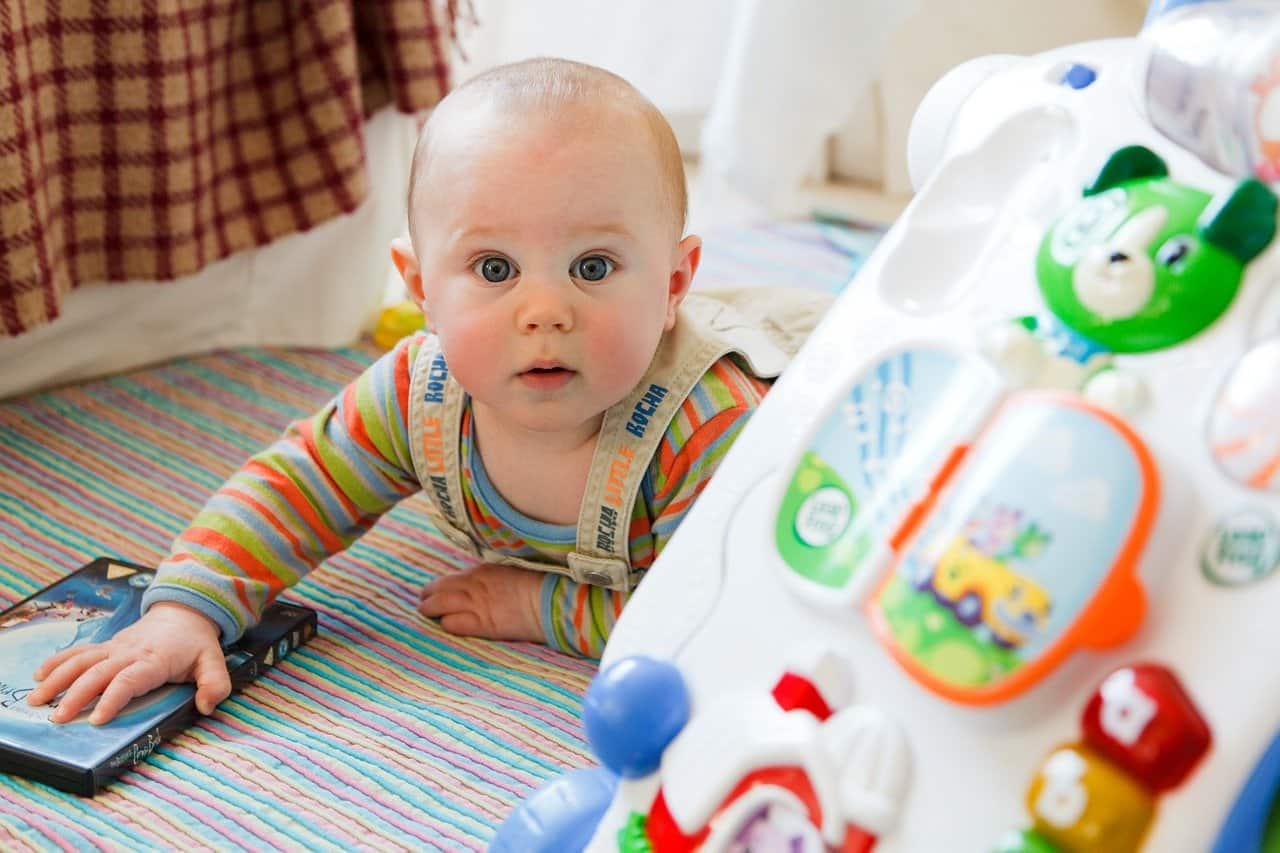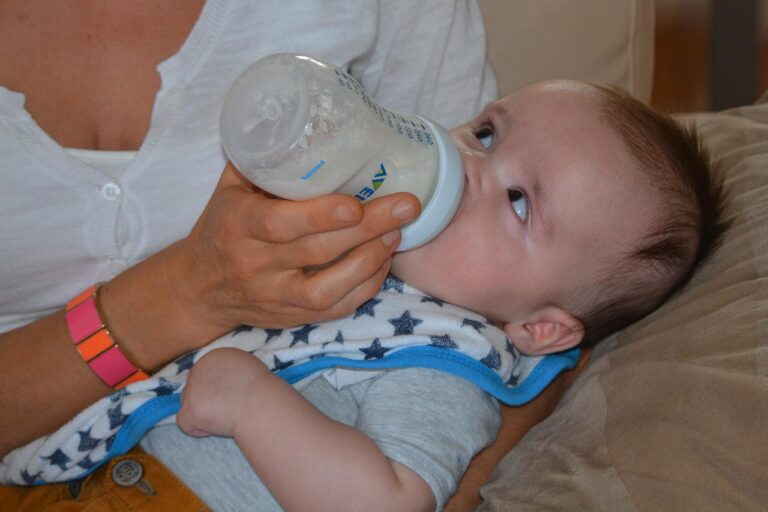Optimal Baby Schedules 2 Months Full Guide
Congratulations on reaching the two-month mark with your baby! At this stage, it’s important to establish a flexible routine that caters to your baby’s needs. In this comprehensive guide, we will cover everything from sleep and feeding schedules to developmental milestones and activities for your 2-month-old. Let’s dive in and create the perfect schedule for your little one!
Key Takeaways:
- Establishing a flexible routine is crucial for your 2-month-old baby’s development.
- Pay attention to your baby’s wake windows and sleepy cues to determine nap times.
- Sample sleep schedules can guide you, but every baby is unique.
- 2-month-old babies typically take 4-6 naps per day, aiming for 5-6 hours of daytime sleep.
- Engaging in simple activities can promote your baby’s developmental milestones.
Understanding 2 Month Old Wake Windows and Sleep Schedule
During the second month, it’s essential to pay attention to your baby’s wake windows, which is the length of time they can stay awake before needing to nap. At 2 months old, the typical wake windows range from 60 to 90 minutes. However, each baby is unique, and observing your baby’s sleepy cues will help determine when it’s time for them to sleep.
It’s important to note that a rigid schedule is not necessary at this age. Instead, focus on establishing a flexible routine that adjusts to your baby’s needs. By being responsive to their cues, you can create a sleep schedule that works best for your little one.
One helpful tip is to keep an eye out for signs of sleepiness, such as yawning, rubbing their eyes, or becoming fussy. When you notice these cues, it’s a good indication that it’s time for your baby to rest. Remember that at this stage, your baby’s sleep needs may vary throughout the day, so try not to be too rigid with specific nap times.
To better understand your baby’s sleep schedule, it can be helpful to track their wake windows and nap times. This will allow you to identify patterns and adjust their routine accordingly. By creating a sleep-friendly environment and following your baby’s natural sleep cues, you’ll be well on your way to establishing a healthy sleep schedule for your 2-month-old.
Sample 2 Month Old Sleep Schedule
While every baby is different and there is no one-size-fits-all sleep schedule, here’s an example of a 2 month old sleep schedule that you can use as a guide:
Bedtime: 7:30 PM
Night Feedings: 1-2 feedings, as needed
Wake Up: Around 7:00 AM
First Nap: 45 minutes after waking up
Nap Duration: 1-2 hours
Second Nap: 1.5-2 hours after first nap
Nap Duration: 1-2 hours
Third Nap: 1.5-2 hours after second nap
Nap Duration: 1-2 hours
Fourth Nap: 1.5-2 hours after third nap
Nap Duration: 1-2 hours
Fifth Nap: 1.5-2 hours after fourth nap
Nap Duration: 1-2 hours
This is just a general example and may not work perfectly for every baby. It’s important to adjust the schedule according to your baby’s needs and cues. Remember, flexibility is key at this stage. It’s also normal for some babies to take longer naps or have shorter awake times between naps. Trust your instincts and observe your baby’s sleep patterns to create a schedule that supports their development and well-being.
To help your baby wind down before bedtime, create a soothing routine that includes activities such as a warm bath, gentle massage, and quiet time with a bedtime story. As you implement this sample sleep schedule, remember to provide a calm and comfortable sleep environment, free from distractions and excessive noise.
Naps for a 2 Month Old
At 2 months old, naps play a crucial role in your baby’s sleep and development. Understanding the duration and frequency of naps can help you create an appropriate sleep schedule for your little one.
During this stage, it’s normal for naps to vary in length and frequency. Newborns typically take shorter naps, ranging from 20 minutes to 2 hours. As your baby reaches 2 months old, they may start taking 4-6 naps per day.
While the number of naps may vary each day, it’s important to aim for around 5-6 hours of daytime sleep in total. This ensures that your baby gets enough rest to support their growth and development.
Pro Tip: Pay attention to your baby’s sleepy cues to determine when it’s time for a nap. Signs of sleepiness can include yawning, rubbing their eyes, or becoming fussy.
Awake time between naps is another important aspect to consider. Generally, it’s recommended to have awake times of around 45 minutes to 1.75 hours, depending on your baby’s needs. It’s essential to find the right balance between allowing your baby enough awake time for stimulation and ensuring they don’t become overtired.
Remember, every baby is unique, and their nap needs may differ. Observing your baby’s individual patterns and adjusting their nap schedule accordingly can help promote better sleep and overall well-being.
To learn more about the importance of naps and how to establish healthy sleep habits for your 2-month-old, continue reading the next section.
Developmental Milestones and Activities for a 2 Month Old

At 2 months old, your baby is reaching important developmental milestones. During this stage, they are gaining better control of their head, responding to familiar voices with smiles, and starting to make adorable pre-talking noises like squealing and gurgling. You’ll also notice their curiosity as they attempt to grab their feet or stare intently at their tiny hands.
To support and encourage your baby’s development, engaging in simple activities can be both fun and beneficial. Here are some activities you can enjoy together:
- Make funny faces and exaggerated expressions. Your baby will be captivated by your animated interactions.
- Go for walks and explore the world around you. Fresh air and changing scenery provide valuable stimulation.
- Look at board books together. Even though your baby won’t understand the words, they will enjoy the colorful pictures and the sound of your voice.
Remember, every baby develops at their own pace, so don’t worry if your little one hasn’t reached a particular milestone yet. If you have any concerns about your baby’s development, it’s always best to consult with your pediatrician. They can provide guidance and reassurance tailored to your baby’s unique needs.
Next, we’ll explore common sleep regressions and the struggles you might face with your 2-month-old’s sleep patterns. Understanding these challenges can help you navigate them more effectively. Let’s dive in!
Sleep Regressions and Struggles at 2 Months Old
If you find that your 2-month-old is having trouble with sleep, you’re not alone. Many parents experience sleep regressions and struggles during this stage of their baby’s development. While it can be frustrating, it’s important to remember that it is a normal part of their growth process.
“It can be challenging when your baby starts fighting sleep at this age, but there are reasons behind it,” says Dr. Jane Thompson, a pediatrician specializing in infant sleep. “One of the key factors contributing to sleep regression is the 2 month old sleep regression, which can disrupt your baby’s sleep patterns for a temporary period.”
During this regression, your baby’s sleep may become more fragmented, and they may wake more frequently during the night. This can be attributed to significant developmental changes, such as brain development, increased awareness of their surroundings, or growth spurts.
“Babies at this age become more alert and curious about the world around them, which can make it difficult for them to settle down and sleep,” adds Dr. Thompson. “Additionally, some babies may become more sensitive to overstimulation or have difficulty self-soothing.”
To help your baby during this phase, there are a few strategies you can try:
- Stick to a consistent bedtime routine: Establishing a calm and predictable bedtime routine can help signal to your baby that it’s time to wind down and prepare for sleep.
- Create a sleep-friendly environment: Make sure your baby’s sleep space is comfortable, quiet, and dark. Consider using blackout curtains and white noise machines to minimize disruptions.
- Watch for sleepy cues: Pay attention to your baby’s sleepy cues and put them to bed when they are drowsy but still awake. This encourages them to develop self-soothing skills and promotes independent sleep.
- Manage wake windows: Pay attention to your baby’s awake windows and avoid overtiredness. Putting your baby down for a nap before they become overtired can make it easier for them to fall asleep.
- Offer comfort when needed: It’s normal for babies to wake up during the night for feeding and comforting at this age. Respond to their needs promptly and provide reassurance if they wake up.
Remember, every baby is unique, and what works for one may not work for another. If you’re struggling with your baby’s sleep or have concerns about their sleep patterns, it’s always best to consult with your pediatrician for guidance and support.
“Sleep regressions can be tough, but they are usually temporary. With patience, consistency, and understanding, you can help your baby navigate through this phase and establish healthy sleep habits,” advises Dr. Thompson.
By following these strategies and seeking professional guidance when needed, you can help your baby overcome sleep regressions and foster healthy sleep habits that support their growth and development.
Feeding Recommendations for a 2 Month Old
At 2 months old, your baby’s feeding needs are crucial for their growth and development. Understanding how much and how often to feed your little one is essential. Here are some feeding recommendations to help you navigate this stage:
1. Full Feedings Every 2-3 Hours
Babies at this age typically require full feedings every 2 to 3 hours. It’s important to listen to your baby’s hunger cues and feed them when they show signs of being hungry. These cues may include rooting, sucking on their hands, or making chewing motions. By responding and feeding appropriately, you are providing the nourishment your baby needs for optimal growth.
2. Watch for Signs of Fullness
While it’s important to feed your baby when they’re hungry, it’s equally crucial to recognize when they are full. Look for signs such as relaxed and open hands, contentment after a feeding, and the ability to go 2 to 3 hours before the next feeding. By paying attention to their cues, you can avoid overfeeding and ensure that your baby is satisfied.
3. Individual Variations
It’s important to note that the amount of calories a 2 month old needs can vary from baby to baby. Factors such as weight, growth rate, and overall health can influence their individual feeding requirements. Consulting with your pediatrician will help ensure that your baby is receiving the appropriate amount of nutrition for their unique needs.
Remember, keeping a record of your baby’s feeding schedule and discussing any concerns or questions with your healthcare provider is essential. Providing adequate nutrition and nourishment contributes to their overall well-being and growth.
In the next section, we will explore the importance of establishing healthy sleep habits for your 2 month old. But first, take a moment to cherish these precious moments with your little one:
Establishing Healthy Sleep Habits for a 2 Month Old
While strict schedules are not necessary at this age, it’s never too early to start establishing healthy sleep habits for your 2 month old. By introducing a consistent bedtime routine, creating a calming sleep environment, and promoting independent sleep, you can help your baby develop healthy sleep habits that will benefit them in the long run.
One of the key factors in establishing healthy sleep habits is having a consistent bedtime routine. This routine can include activities such as giving your baby a warm bath, reading a bedtime story, or singing a lullaby. By repeating these activities every night before bed, your baby will learn to associate them with sleep and relaxation.
Another important aspect of creating a conducive sleep environment is keeping the sleeping area calm and comfortable. Make sure the room is dimly lit and at a comfortable temperature. Using soft bedding and a soothing white noise machine can also help create a relaxing atmosphere for your baby.
When putting your baby to bed, aim to do so when they are drowsy but still awake. This allows them to learn how to self-soothe and fall asleep independently. By providing them with the opportunity to practice these skills, you are helping them develop the ability to soothe themselves back to sleep when they wake up during the night.
Minimizing stimulation during nighttime awakenings is crucial to encourage your baby to go back to sleep easily. If your baby wakes up during the night, keep the lights dim and avoid engaging in stimulating activities. Instead, provide gentle reassurance and comfort as needed without fully waking them up.
Remember, establishing healthy sleep habits takes time and patience. It’s normal for babies to wake up at night for feeding and comforting at this age. By responding to your baby’s needs promptly and consistently, you are helping them feel secure and safe in their sleep environment.
By incorporating these sleep tips into your routine, you can lay the foundation for healthy sleep habits for your 2 month old. Keep in mind that every baby is unique, and it may take some time to figure out what works best for your little one. Trust your instincts, stay consistent, and consult with your pediatrician if you have any concerns or questions along the way.
Tackling 2 Month Old Sleep Problems

At around 2 months old, you may encounter some sleep challenges with your baby. Two common issues include frequent nighttime feedings and difficulty settling down. It’s important to remember that waking up once or twice overnight to eat is typical for a 2-month-old. However, if your baby experiences excessive awakenings, it may be a sign to evaluate their daytime feeding and sleep habits.
To help address difficulty settling down, establishing a consistent bedtime routine can be beneficial. Creating a calming and soothing environment before bedtime can aid in promoting better sleep. Avoid overstimulation by engaging in calming activities such as reading a bedtime story or singing a lullaby.
Monitoring your baby’s nap duration is also important. An overtired baby may have more difficulty falling asleep and staying asleep. Keep an eye on their awake time and make sure they aren’t awake for too long in between naps.
How to Address 2 Month Old Sleep Problems
- Create a consistent bedtime routine that includes calming activities.
- Avoid overstimulation before bedtime.
- Monitor your baby’s nap duration and make sure they aren’t overtired.
- Provide a soothing sleep environment, such as a dark and quiet room.
If you find that your baby’s sleep problems persist or worsen, it’s always a good idea to consult with your pediatrician for guidance. They can provide personalized advice based on your baby’s individual needs and help you navigate through any challenges you may be facing.
Sleep Training Considerations for a 2 Month Old
When it comes to sleep training a 2-month-old baby, it’s important to note that official sleep training methods are not recommended at this age. This is because their sleep-wake system is still developing, and their sleep patterns can be unpredictable. However, there are some gentle techniques you can use to encourage healthy sleep habits.
One approach is to create opportunities for your baby to fall asleep in their sleep space from a drowsy but awake state. This helps them learn self-soothing skills and promotes independent sleep. By allowing them to gradually settle themselves to sleep, you are fostering their ability to soothe themselves back to sleep when they wake up during the night.
“Creating a consistent and comfortable sleep environment, along with a calming bedtime routine, can also contribute to better sleep for your baby,” says Dr. Jane Adams, a renowned pediatrician.
It’s important to approach sleep training with patience and understanding. Remember, your baby is still adjusting to the world outside the womb and their sleep patterns will continue to evolve. Be flexible and responsive to their needs, and avoid placing unnecessary pressure on yourself or your baby to meet specific sleep training milestones.
If you have any concerns or questions about sleep training your 2-month-old, it is always best to consult with pediatric professionals. They can provide personalized guidance based on your baby’s unique needs and help you navigate this important stage of their development.
Continuing Healthy Sleep Habits Beyond 2 Months

As your baby continues to grow, their sleep needs and patterns will evolve. It’s important to continue fostering healthy sleep habits as they enter new stages. Gradually adjusting wake windows, nap durations, and bedtime routines can help your baby navigate these transitions. Regularly consulting with your pediatrician and staying attuned to your baby’s cues will ensure that you are providing the best sleep environment and schedule for your little one.
To support your baby’s healthy sleep habits, here are some key considerations:
1. Adjusting Wake Windows
As your baby grows, their awake time will increase, and their nap frequency may decrease. Pay attention to your baby’s sleepy cues, such as rubbing their eyes or becoming fussy, to determine when it’s time for a nap. Gradually extend their wake windows to accommodate their developing sleep needs.
2. Adapting Nap Duration
As your baby gets older, their naps will naturally start to consolidate. Instead of several short naps, they may transition to longer and fewer naps throughout the day. Observe your baby’s sleep patterns and adjust their nap durations accordingly. Consistency is key in establishing a predictable nap routine.
3. Modifying Bedtime Routine
A soothing bedtime routine is essential for signaling to your baby that it’s time to wind down and prepare for sleep. As your baby grows, you can introduce new elements to the routine, such as a warm bath or reading a bedtime story. Keep the routine calm, consistent, and enjoyable for your baby.
4. Consulting with Your Pediatrician
Your pediatrician is a valuable resource when it comes to your baby’s sleep habits. They can provide personalized guidance based on your baby’s individual needs and address any concerns you may have. Regular check-ups will ensure that your baby’s sleep schedule aligns with their overall growth and development.
“A good laugh and a long sleep are the best cures in the doctor’s book.” – Irish Proverb
Remember, every baby is different, and it’s important to be flexible and adapt to your baby’s changing sleep needs. By nurturing healthy sleep habits, you are setting the foundation for a lifetime of restful nights and a well-rested, happy baby.
Conclusion
Creating an optimal schedule for your 2-month-old baby is essential for their well-being and development. By establishing a flexible routine that caters to their individual needs, you can ensure they get the sleep they need and remain content throughout the day. While there is no one-size-fits-all approach to baby schedules at this age, there are key factors you can consider to guide you.
First, pay attention to your baby’s wake windows, which determine how long they can stay awake before needing to nap. This will help you identify their sleepy cues and establish an appropriate sleep schedule. Additionally, be mindful of developmental milestones and adjust the routine accordingly. Your baby’s growth and progress may influence their sleep patterns, so accommodating these changes can support their overall development.
Lastly, prioritize healthy sleep habits by creating a calm and comfortable sleep environment. Encourage a consistent bedtime routine and aim to put your baby to bed when they are drowsy but still awake. This promotes self-soothing and independent sleep, laying the foundation for healthy sleep habits in the long run. Trust your instincts as a parent and, when needed, consult with pediatric professionals for guidance tailored to your baby’s specific needs.
FAQ
What is the optimal baby schedule for a 2-month-old?
The optimal baby schedule for a 2-month-old involves establishing a flexible routine based on their individual needs. While there is no one-size-fits-all approach, paying attention to wake windows, accommodating developmental milestones, and prioritizing healthy sleep habits can contribute to a well-rested and content baby.
How many naps should a 2-month-old take?
A 2-month-old typically takes around 4-6 naps per day. The number of naps may vary each day depending on nap lengths, but it’s important to aim for around 5-6 hours of daytime sleep in total.
What are some developmental milestones and activities for a 2-month-old?
At 2 months old, babies may display improved head control, smile at familiar voices, make pre-talking noises, and attempt to grab their feet or stare at their hands. Simple activities such as making funny faces, going for walks, and looking at board books together can help stimulate their development.
What should I do if my 2-month-old is experiencing sleep regressions?
Sleep regressions can occur during periods of developmental growth. It’s important to note that official sleep training is not recommended at this age. Instead, observe your baby’s wake windows, create a calm sleep environment, and respond to their needs promptly.
How often and how much should I feed my 2-month-old?
A 2-month-old typically needs full feedings every 2-3 hours according to their hunger cues. Watch for signs that your baby is full, such as relaxed hands and contentment after feeding, and consult with your pediatrician for guidance on the appropriate amount of nutrition.
How can I establish healthy sleep habits for my 2-month-old?
Encouraging a consistent bedtime routine, keeping the sleep environment calm and comfortable, and putting your baby to bed when drowsy but still awake can help promote self-soothing and independent sleep. Responding to your baby’s needs promptly and minimizing stimulation during nighttime awakenings can create a secure sleep environment.
What should I do if my 2-month-old is having sleep problems?
If your 2-month-old is experiencing constant nighttime awakenings or difficulty settling down, ensure a consistent routine, avoid overstimulation before bedtime, and monitor nap duration. Consulting with your pediatrician can provide guidance tailored to your baby’s specific needs.
Can I start sleep training my 2-month-old?
Official sleep training is not recommended for 2-month-olds due to their immature sleep-wake system and unpredictable sleep patterns. However, you can create opportunities for your baby to fall asleep in their sleep space from a drowsy but awake state to promote self-soothing skills.
How can I continue healthy sleep habits for my baby as they grow beyond 2 months?
As your baby grows, continue fostering healthy sleep habits by gradually adjusting wake windows, nap durations, and bedtime routines. Regularly consulting with your pediatrician and staying attuned to your baby’s cues will ensure that you are providing the best care for their evolving sleep needs.









